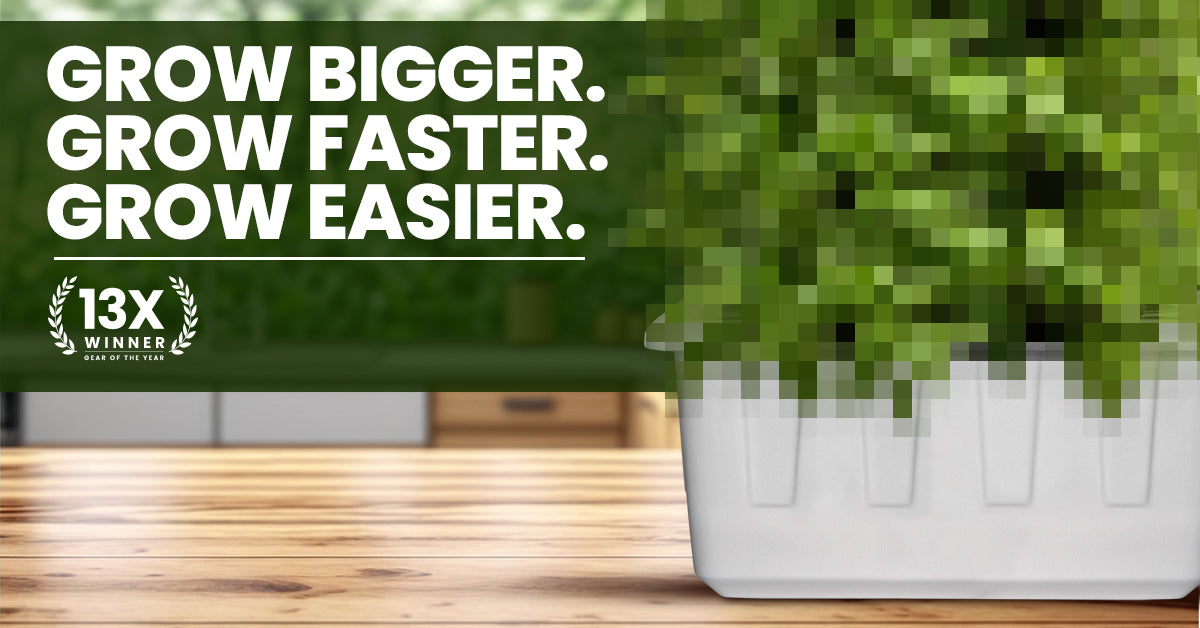How to Add Nitrogen to Soil: Boost Your Plant Growth Naturally
Understanding Nitrogen's Role in Soil Health
Nitrogen is a key nutrient for plant growth, playing a vital role in processes like photosynthesis and protein synthesis. If your plants show signs of yellowing leaves, stunted growth, or weak stems, it could indicate a nitrogen deficiency. To ensure healthy, vibrant plants, it's essential to know how to add nitrogen to your soil effectively. Here are several natural and easy methods to enrich your soil with nitrogen.
Signs Your Soil Needs More Nitrogen
Before adding nitrogen, it's important to recognize the signs of nitrogen deficiency. Here are common symptoms:
- Yellowing Leaves: One of the most noticeable signs, especially on older leaves, is yellowing caused by the lack of chlorophyll production.
- Stunted Growth: Nitrogen is essential for vegetative growth, so plants may appear small or underdeveloped.
- Weak Stems: Without enough nitrogen, stems may become weak and unable to support healthy plant growth.
Best Natural Ways to Add Nitrogen to Soil
If your soil is lacking in nitrogen, there are several natural ways to restore this crucial nutrient. Here's how you can naturally boost nitrogen levels in your soil:
1. Composting Organic Matter
One of the most effective ways to add nitrogen to your soil is by composting organic matter. Materials like vegetable scraps, coffee grounds, grass clippings, and eggshells break down to release nitrogen into the soil over time. When well-composted, these materials create a nutrient-rich soil amendment that improves the overall health of your garden.
- How to Use: Mix composted organic matter directly into your garden beds or use it as a top dressing around your plants.
- Tip: Avoid adding too much fresh material directly to the soil, as it can temporarily deplete nitrogen during the decomposition process.
2. Incorporating Manure
Animal manure is a great source of nitrogen. Well-rotted manure from cows, chickens, horses, or rabbits can be worked into the soil to improve its nitrogen content. Just be sure to allow manure to compost before adding it to your garden, as fresh manure can be too strong and may burn your plants.
- How to Use: Apply aged manure in a thin layer over your soil and lightly till it in. You can also mix it into your compost pile to enrich it further.
- Tip: Chicken manure is particularly high in nitrogen but must be well-aged before use.
3. Planting Nitrogen-Fixing Cover Crops
Nitrogen-fixing plants like legumes (beans, peas, clover) can naturally restore nitrogen levels in your soil. These plants work by hosting nitrogen-fixing bacteria in their root nodules, which convert nitrogen from the air into a form that plants can use. After harvesting these crops, the remaining plant matter can be turned into the soil to further enrich it with nitrogen.
- How to Use: Plant cover crops in rotation with your main crops, allowing them to grow and then till them back into the soil.
- Tip: Clover is a great option for small gardens, while beans and peas work well in larger spaces.
4. Applying Blood Meal or Fish Emulsion
Blood meal and fish emulsion are two natural fertilizers that provide an immediate nitrogen boost. Blood meal is made from dried animal blood and is rich in nitrogen, while fish emulsion is a liquid fertilizer made from fish waste. Both options are fast-acting and can quickly improve nitrogen levels in the soil.
- How to Use: Sprinkle blood meal onto the soil around your plants or dilute fish emulsion with water according to the package instructions before applying it to the soil.
- Tip: Be careful with blood meal, as it can burn plants if over-applied. Always follow the recommended application rates.
5. Using Coffee Grounds
Used coffee grounds are a simple and effective way to add a small nitrogen boost to your garden. As they break down, coffee grounds release nitrogen into the soil, improving its nutrient content. They also help to improve soil texture and water retention.
- How to Use: Spread used coffee grounds over the soil surface or mix them into your compost bin. Coffee grounds are slightly acidic, so use them sparingly around plants that prefer neutral or alkaline soils.
- Tip: Rinse the coffee grounds before use to reduce their acidity if needed.
How to Maintain Nitrogen-Rich Soil
Once you've successfully added nitrogen to your soil, maintaining those levels is key for ongoing plant health. Here are a few ways to keep nitrogen levels balanced:
1. Regular Composting
Continue adding compost to your garden to ensure a steady supply of nutrients. Regularly composting organic material ensures that your soil remains nutrient-rich and promotes healthy plant growth.
2. Crop Rotation
Practice crop rotation to prevent nutrient depletion, especially nitrogen. Grow nitrogen-fixing plants like beans or peas in different areas each season to naturally replenish nitrogen in the soil.
3. Mulching
Adding mulch around your plants helps retain moisture, regulate soil temperature, and, over time, improves the soil's nitrogen levels as the mulch breaks down.
Achieve Healthy Growth by Adding Nitrogen to Your Soil
Adding nitrogen to your soil is essential for ensuring healthy plant growth and vibrant greenery. Whether you opt for composting, manure, cover crops, or natural fertilizers like blood meal, the key is to apply these methods properly and monitor your plants' progress. With the right approach, you'll be able to maintain a thriving garden full of nutrient-rich soil.
Frequently Asked Questions
- How can I tell if my soil lacks nitrogen? Yellowing leaves, stunted growth, and weak stems are common signs of nitrogen deficiency.
- Can I add too much nitrogen to the soil? Yes, over-fertilizing with nitrogen can lead to lush foliage but poor fruit or flower production. Always follow recommended guidelines when applying nitrogen-rich amendments.
- How often should I add nitrogen to my soil? It depends on your plants and growing conditions. Typically, adding nitrogen-rich compost or fertilizers once or twice per season is sufficient.


